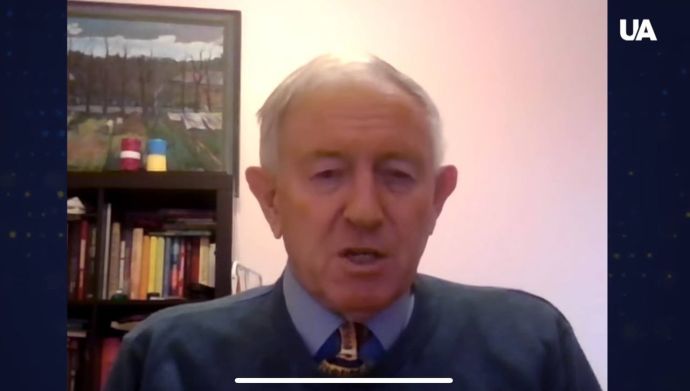Mike Waltz as national security adviser, Sen. Marco Rubio as secretary of State, Pete Hagseth, a TV host, now hosting the Pentagon – what is going on in the US and what’s to expect in Ukraine about it. And update on Kursk incursion.
Swift, true and sharp interview with simple questions and sincere answers with our guest – Mr. Glenn Grant, the British officer and former adviser to the Ukrainian Ministry of Defense.
— First things first: Mike Waltz as Trump’s pick for National Security Advisor, Senator Mark Rubio as Secretary of State, and, ta-da, Pete Hegseth, a TV host, now heading the Pentagon. Should we already be scared, or should we wait for the show to air first?
— Oh, definitely. I’m glad you didn’t ask me for any big opinions on these appointments because, really, in my view, there’s no way of knowing where we’re heading. With so many unknowns in the mix, it’s hard to predict. The biggest unknown, of course, is how Russia will perceive these figures and respond. We have no clue about that yet. I did get a little tip earlier that Hegseth’s role at the Pentagon might focus less on Ukraine and more on “cleaning up” the Pentagon—removing the “soft” elements and the “wokism,” as some see it, which they believe has swung too far to the left and lost its “steel edge,” you might say. So, that’s probably what we can expect from him initially. But hey, they’re all intelligent, so something will come of it.
— Maybe they’re looking to find their steel edge or backbone, if I can put it that way. But here’s a question I was recently mulling over—why do you think the Democrats lost?
— Because of the candidate; it was incredible. Let’s be honest: she showed no evidence of policy strength or fighting spirit during her time as Vice President. In fact, she’s been somewhat of a nonentity. I half-jokingly wondered if Biden chose her so the Democrats would lose, because, frankly, she should never have been chosen.
— It’s unbelievable, isn’t it? Things that shouldn’t happen just happen. I don’t know if Trump’s return is good or bad, but I do know that Trump walking and Trump talking can feel like two different people.
He was the one who authorized Javelins—he was actually the first to send lethal aid to Ukraine, which helped deter Putin.
So let’s wait and see what unfolds. But tell me, how is Latvia reacting to Trump’s win?
— I think a lot of people are quite worried about it, but Latvia is a pretty inward-looking country. We haven’t seen a big outpouring of emotion, as that’s not very Latvian; it’s more our style to mind our own business and accept things as they are.
I haven’t heard any strong reactions about Trump’s win or the Democrats’ loss. Latvia will continue to support Ukraine as much as it can—sending lots of vehicles, funds, and equipment. Beyond that, we’ll just mind our own business.
— A very British approach, isn’t it? With that attitude, it’s hard to tell if you’re Latvian or English. So, as long as there’s no big reaction, everything is fine. But what do you think about the front line in the Kharkiv region? Some say Putin recently lost 28 tanks and around 200 soldiers—which, for Putin, is just a daily toll in this war. What’s the latest?
— The front line is interesting. In the east, the front is receding daily, sometimes by five or six kilometers. The whole military organization there isn’t up to par. Some of the soldiers close to the front line—without giving specifics—lack equipment. They know full well that if they’re attacked, they’ll likely fall back because they don’t have the weapons to hold their position.
Part of the issue is that the volume of weapons needed hasn’t been provided, and part of it is the incompetence within the system itself.
A lot of the front line is still being supported by volunteers, who are raising money to buy drones and other equipment, while the government is not sufficiently stepping in. The biggest frustration for everyone is the lack of respect shown toward soldiers. Thousands have left the front due to this disrespect, to the point where the government had to change the law so that deserters wouldn’t face punishment if they returned. Some have come back, but they’re frustrated by the poor treatment and the feeling that they’re just left to die. Until that changes, the front line will likely keep moving backward.
— It’s changing, Colonel, though slowly. Ukraine has inherited a deeply flawed and often toxic Soviet-era system. Putin may have shattered that system, but what we’re witnessing is the rebirth of a nation through blood and fire.
— Very true. Although people on the front line understandably hate being mistreated, when you look across at the Russian side, you see even worse conditions—untrained people being sent in to die. That’s unfortunately how Russia wages war, and their numbers aren’t depleting as fast as some might wish. I think the fighting will continue for quite a while.
Read also: European Commissioner for Space Defense – Trump Impersonates Reagan










